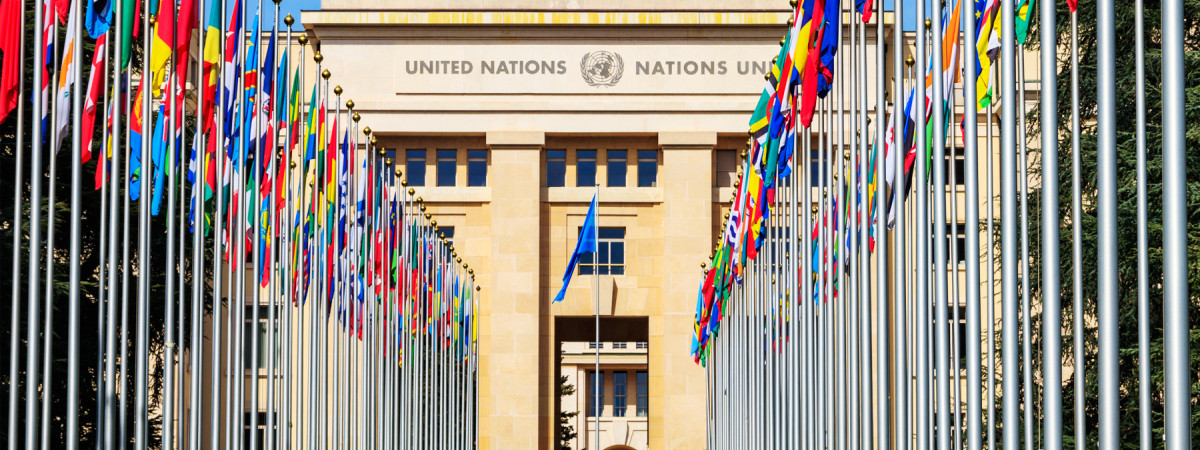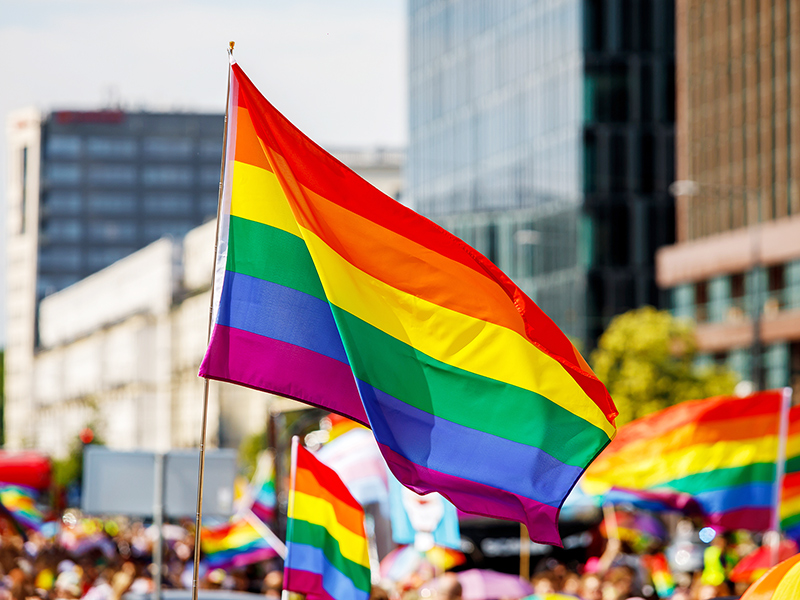
Photo by OlyaSolodenko on iStock
Key Points
- We have seen a rise in the number of companies implementing the UNGPs as well as multi-stakeholder initiatives that incorporate them. Yet over twelve years since their adoption, gaps in business uptake remain.
- Currently, governments are negotiating a globally binding treaty that would require states to ensure companies respect human rights and undertake human rights impact assessments.
- The treaty could help address the root causes of human rights harms deep in value chains, create a baseline of legal certainty across jurisdictions, and level the playing field for those businesses already taking steps to respect human rights.
As a wave of mandatory human rights and environmental due diligence rules sweep across Europe, governments are negotiating a globally binding treaty that would require governments to ensure that businesses respect and are accountable for human rights throughout their global value chains.
The negotiations began after the UN Human Rights Council—led by Ecuador and South Africa—created an open-ended intergovernmental working group (IGWG) in 2014 tasked with elaborating a legally binding instrument to regulate the activities of transnational corporations and other businesses. China and Russia have been strong supporters of the IGWG’s mandate while the United States and the European Union (EU) only recently started engaging in this process.
Released in July 2023, the latest draft treaty centers the rights of victims to access remedy and requires governments to ensure companies respect human rights and undertake and publish human rights impact assessments on a regular basis. Legal liability extends to natural and legal persons and includes criminal, civil, and administrative liability.
If approved, States that adopt the treaty would be required to transpose treaty commitments into domestic law, thereby making it binding on companies in their jurisdictions.
Closing the Global Governance Gap
The treaty effort follows five decades of growing awareness that companies have faced little accountability for human rights harms when operating transnationally. In 1972, President Salvador Allende of Chile spoke to the UN General Assembly about the growing impact of ‘transnational corporations’ on developing countries, stressing the need to address the global governance gap surrounding multinational companies and their impact on human rights and development.
The 2011 endorsement of the UN Guiding Principles on Business and Human Rights (UNGPs) by governments was a major milestone in the direction of closing this gap. A soft law instrument, the UNGPs have provided a critical foundation for advancing the integration of human rights in core business and emerging regulations.
At BSR, we have seen a rise in the number of companies implementing the UNGPs as well as multi-stakeholder initiatives that incorporate them.
Yet over twelve years since their adoption, gaps in business uptake remain. In 2023, the Corporate Human Rights Benchmark (CHRB) found that while most companies are making progress on human rights due diligence (HRDD), most “have only made small improvements, with an average increase of just 2–3 points over five years.” CHRB previously indicated that companies that improved on HRDD had done so on the initial steps of due diligence, rather than tracking and communicating human rights-related actions.
While the EU’s Corporate Sustainability Due Diligence Directive promises to move the needle, movement in one region is not movement everywhere. EU companies, soon to be tasked with upholding human rights in global supply chains, will have a gargantuan task ahead if governments in other regions do not create enabling environments for responsible business in their jurisdictions.
Negotiating the Treaty’s Scope
Signaling awareness that voluntary measures are not enough, the US, the EU, and European countries constructively participated in the latest round of negotiations in October 2023. The EU announced that it is developing a formal negotiation mandate, and the UK acknowledged the value of a binding instrument for strengthening business and human rights protections.
Meanwhile, China—recognizing the negative impacts of transnational business on human rights and the environment—expressed support for the negotiation process and the potential contribution of a binding instrument for strengthening corporate regulation and accountability and providing timely and effective remedy to victims.
Two of the regions most impacted by irresponsible business—Africa and Latin America—were also active and coordinated.
Article 3, on the scope of business covered, is proving most contentious in negotiations. Some States, such as China, Russia, and South Africa, argue for a focus on transnational companies, while others, including the US, the UK, Chile, Mexico, and Panama, call for the scope to encompass all businesses. States also called for explicit reference to the protection of the environment, conflict-affected areas, international humanitarian law, children’s rights, and peasants, as well as definitions of victims and effective remedy. Some proposed adding financial actors, such as investors and banks.
As in previous years, statements by States and other stakeholders during negotiations were compiled and form the basis for updating the draft moving forward. Over 2024, IGWG will host inter-sessional consultations with States and an updated draft for negotiation is expected mid-year.
How Business Can Prepare for a Binding Treaty
To date, the role of business in treaty discussions has been limited. While the exact implications of the treaty for business remain to be seen—binding treaty processes often take years, even decades—companies already conducting HRDD have every reason to support the development of a treaty that builds on the UNGPs and the best practices that have ensued.
In addition to creating enabling environments for responsible business across regions, a treaty can help address the root causes of human rights harms deep in value chains, create a baseline of legal certainty across jurisdictions, and level the playing field for those businesses already taking steps to respect human rights.
To prepare for the eventual adoption of the treaty, companies are encouraged to:
-
Begin, or continue to, implement the UNGPs with rigor and heightened attention to ensuring access to effective remedy for victims of harms across global value chains;
-
Prepare for emerging regulation in ways that focus on the desired human rights outcomes of the regulation, not simply the letter of the law;
-
Seek to understand the substantive content of the draft treaty and how it could enhance company efforts to respect human rights globally, such as through more supportive public policy frameworks; and
-
Constructively and transparently engage in the UN process such that the treaty is founded upon a theory of change that achieves the desired outcome for people and draws upon practical experience.
It’s been over 50 years since the impact of global business activities took center stage at the UN. The potential for closing the global governance gap in international law and rewarding business leaders who have taken meaningful—and often underappreciated—steps toward managing their impacts on human rights has never been closer.
BSR’s latest sustainability insights and events straight to your inbox.
Topics
Let’s talk about how BSR can help you to transform your business and achieve your sustainability goals.








